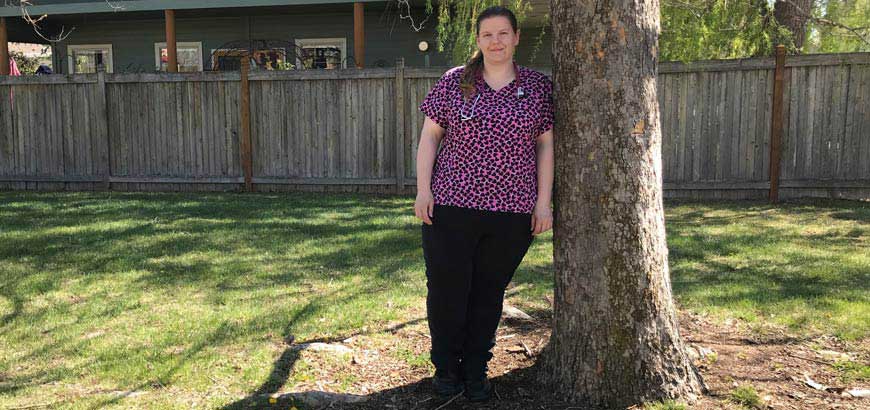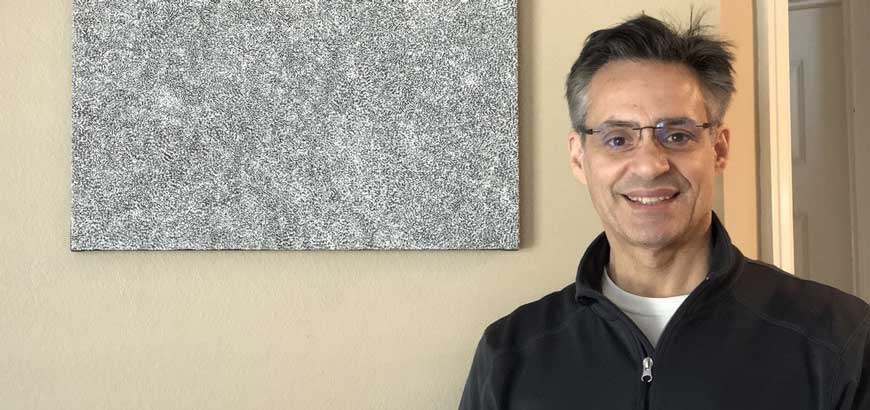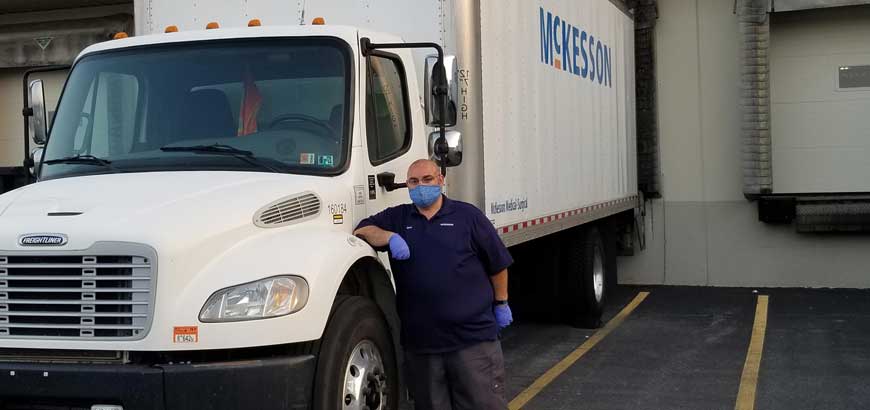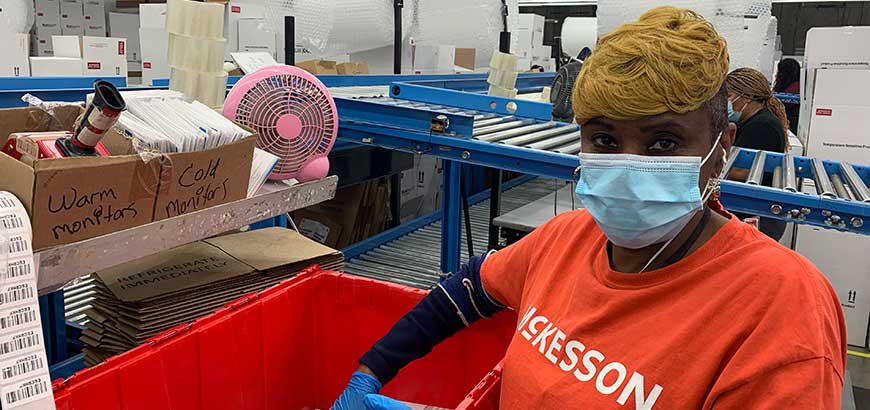Read time: 5 minutes
Kat Alva has a heart for nursing – and it recently helped save a patient from a potentially fatal heart condition.
While she had initially aspired to become a physician, it was Kat’s brother, who recently passed away at the young age of 38, who ultimately inspired her to choose a career in nursing – one where she could fully embrace her passion for helping people.
“I’m a firm believer that things happen for a reason,” Kat says. “While I’ve always been interested in healthcare, growing up with a brother who had a heart condition also helped shape me into someone with a big heart for people. I told him a long time ago that I believe many people have been touched by his life, and he’s a big part of why I became a nurse.”
Today, Kat works as an infusion nurse at one of the more than 100 Intrafusion by McKesson sites across the U.S. The Intrafusion team works with medical practices to deliver more than 75,000 specialty infusion therapies to neurology, rheumatology, gastroenterology and immunology patients every year.
“Intrafusion clinics are set up in physicians’ offices, which offers greater oversight from the physician and greater outcomes for the patient because the doctor is right there, and the same nurse is there every time to educate the patient and monitor his or her progress,” explains Kat’s supervisor Georgina Chambers, Clinical Operations Manager at McKesson.
As the only nurse on staff at her clinic, Kat gives patients infusion treatments for conditions ranging from multiple sclerosis to psoriasis to rheumatoid arthritis. Despite her busy schedule, Kat is laser-focused when it comes to her patients. That includes paying close attention to patients’ symptoms, even when those symptoms are unrelated to the condition Kat is currently treating.
“I was taught to treat the whole patient,” she says. “I tend to do a very thorough assessment and feel it’s important to educate patients about their health. It’s gratifying that my attention to all those details has also helped me catch things throughout my 23 years in healthcare.”
Georgina notes that Kat is known for thoroughly assessing her patients, actively advocating for their best interests, and naturally treating them like family.
“She doesn’t settle for mediocrity,” Georgina says. “She demands exceptionality.”
‘Another day in the life of a nurse’
It’s that exceptionally sharp attention to detail that prompted Kat to trust her instincts and take action when she caught a patient’s dangerous – and undiagnosed – condition.
During a monthly IV treatment, one of Kat’s regular patients was experiencing higher-than-normal blood pressure. The blood pressure monitor Kat uses has a feature that beeps whenever it senses patient movement or a heart rhythm irregularity. But rather than relying solely on the monitor’s readings, Kat has adopted the habit of following any alert she hears with a thorough check on her patients.
"She doesn’t settle for mediocrity. She demands exceptionality."
That day, the machine’s beep detected a potential problem, so Kat informed the clinic’s head physician, Dr. Lawrence Green, and recommended the patient talk to her primary care doctor as soon as possible.
When Kat called the next month to confirm the patient’s appointment, the patient told her she had been experiencing shortness of breath with activity for a few weeks, which the patient had assumed was part of her condition. And while she had followed Kat’s advice and scheduled the appointment with her primary care physician, the appointment hadn’t happened yet. With Dr. Green’s approval, the patient arrived for her scheduled infusion the following day.
But Kat didn’t begin the infusion immediately. Because of her experience the previous month, the first thing she did was listen to the patient’s heart.
“Lo and behold, it was completely irregular,” she says. Dr. Green repeated Kat’s advice to the patient – she needed to see her doctor as soon as possible.
The next day, the patient called Kat – and thanked her for saving her life. She had gone into atrial fibrillation (AFib), and her doctor was sending her to the emergency room. Had Kat not taken the time to listen to her heart and been persistent that she get care, the patient might have ignored her symptoms and experienced a very different outcome.
“I’m so thankful that she’s OK – in fact, with treatment, all of her symptoms have resolved,” Kat says. “I’m also thankful she feels I have made such a positive impact on her life. That’s what I’m here for. Gathering those little details – medical or otherwise – can make a difference. It’s another day in the life of a nurse.”
Having spent years in other areas of nursing prior to joining Intrafusion, Kat finally feels as if she’s found her true calling, in large part due to the deep bonds she’s able to form with her patients.
“In the hospital, I was lucky to see the same patient twice,” she explains. “When I discovered infusion nursing, I felt blessed to be giving these patients life-altering medications. Here, I might see patients as often as once a month or as little as every six months to a year. I love that I can develop these relationships and not be left wondering how they’re doing. It's bittersweet when they don't need to come in anymore, but seeing how my work is changing their lives is so rewarding.”
At the end of the day, it’s this unwavering and personal dedication Kat shows to her patients that embodies the difference between a really good nurse, and a really great one.
“In the medical profession, one can never accept the routine and must always be on guard for the atypical,” Dr. Green explains. It’s a sentiment Georgina echoes.
“Nursing isn’t one thing – it’s all encompassing, treating the person from head to toe,” she adds. “Kat went above and beyond her duties to make a phenomenal callout and save this patient’s life. At McKesson, that’s what we strive for every day – to make a difference for the patients we serve.”
Originally published May 2021




Share
Post
Post
Email